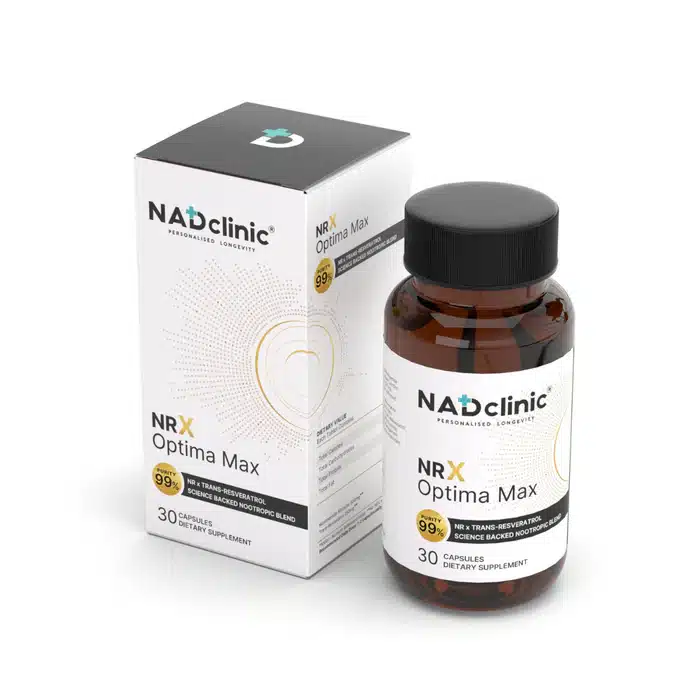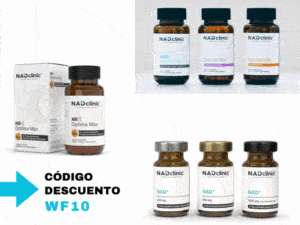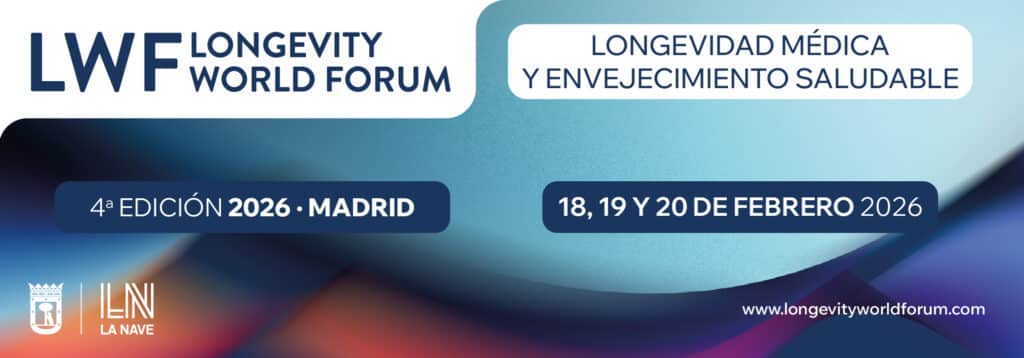The latest clinical trial in patients with Werner's syndrome, a rare accelerated ageing disease, shows that raising NAD⁺ levels with nicotinamide riboside improves vascular, skin and kidney health. The news reinforces the credibility of those in their 50s and older who seek to prevent cellular decline through NAD⁺ supplementation.
In April 2025, a team from the Chiba University Graduate School of Medicine (Japan), led by Masaya Koshizaka y Koutaro Yokotehe published in Aging Cell the results of a double-blind, randomised, crossover clinical trial involving 26 patients with Werner's syndrome (WS), a genetic disease characterised by premature ageing.

For 26 weeks, participants took 1,000 mg daily of nicotinamide riboside (NR)a precursor of NAD⁺, and then crossed to placebo (and vice versa). The results were clear:
- Significantly improved the arterial stiffness (CAVI index).
- The total area of skin ulcersa common complication in WS.
- The blood creatininea sign of renal protection.
- And the most relevant: no serious adverse effects were recordedalthough some subjects showed slight alterations in liver enzymes.
"These findings suggest that restoring NAD⁺ may help not only patients with accelerated ageing, but also older adults with physiological ageing," the authors conclude.
NAD⁺: the cellular fuel that declines with age
The NAD⁺ (nicotinamide adenine dinucleotide) is a vital coenzyme in all our cells: it is involved in mitochondrial energy production, DNA repair and regulation of metabolism. From 40-50 yearslevels naturally fall, contributing to fatigue, poorer muscle function and increased vulnerability to oxidative damage.
Hence, many international teams - such as the one from Vilhelm A. Bohr (NIH, Baltimore; University of Copenhagen) - investigate the impact of supplementing NAD⁺ precursors (NR or NMN) in the over 50s.

What does the science say about the over 50s?
- Martens et al., 2018 (University of Colorado): NR improved arterial stiffness in adults aged 55-79 years with mild hypertension.
- Dollerup et al., 2019 (University of Copenhagen): in patients with obesity and insulin resistance, NR raised plasma NAD⁺ but did not improve insulin sensitivity.
- Yoshino et al., 2021 (Washington University): NMN increased aerobic capacity and insulin sensitivity in pre-diabetic postmenopausal women.
- Reviews 2024-2025 conclude that supplementation reliably raises blood NAD⁺ and is safe in the short term, although clinical benefits vary according to age, sex and pathology.
In sum, the evidence is still emerging, but it lends increasing credence to those who seek to supporting cellular and mitochondrial health with NAD⁺ supplementation from the age of 50.
How to tell if you have low NAD⁺ levels
Laboratory tests are now available to estimate the availability of NAD⁺ in the body:
- LC-MS/MS (liquid chromatography + mass spectrometry): the most accurate method, used in clinical research.
- Enzyme cycling assays: more affordable and useful for group monitoring.
- Rapid capillary puncture tests: still under validation, but they promise to measure the "NADome" in an accessible way.
However, there are no universal clinical reference valuesinterpretation depends on age, sample and clinical context.

Tips before supplementing
Experts agree: if you are considering starting NAD⁺ supplementation, it is essential:
- Consult a doctorespecially in case of chronic diseases, medication use or a history of cancer.
- Choosing brands with the highest quality and evidence of purityavoiding products without clinical support or of dubious origin. Specialised clinics such as NAD Clinic offer reference products in Europe and the USA.
- For readers interested in improving their energy, cell function and longevitythere is the option of to purchase products with a 10% discount by entering the code WF10.
The Chiba trial is not yet definitive proof, but it is a firm step: restoring NAD⁺ can improve central aspects of ageing. Science will continue to answer the remaining questions, but the idea of supporting cellular longevity is no longer science fiction.
Scientific references
Shoji M. et al. Nicotinamide Riboside Supplementation Benefits in Patients With Werner Syndrome: A Double-Blind Randomized Crossover Placebo-Controlled Trial. Aging Cell. 2025.
Martens CR. et al. Chronic nicotinamide riboside supplementation is well-tolerated and elevates NAD⁺ in healthy middle-aged and older adults. Nat Commun. 2018.
Dollerup OL. et al. Nicotinamide riboside does not improve insulin sensitivity in obese men with prediabetes. J Clin Endocrinol Metab. 2019.
Yoshino J. et al. Nicotinamide mononucleotide increases muscle insulin sensitivity in prediabetic women. Science. 2021.
Elhassan YS. et al. Nicotinamide riboside augments human skeletal muscle NAD⁺ metabolism and alters mitochondrial function. Cell Metab. 2019.
Airhart SE. et al. An open-label, non-randomized study of NR supplementation in healthy volunteers. PLoS One. 2017.
Liu L. et al. Decline of NAD⁺ with age and therapeutic potential of NAD⁺ restoration. Nat Rev Drug Discov. 2018.
Katsyuba E., Auwerx J. Modulating NAD⁺ metabolism, from bench to bedside. EMBO J. 2017.
Rajman L, Chwalek K, Sinclair DA. Therapeutic potential of NAD⁺ precursors in aging and disease. Nat Rev Drug Discov. 2018.
De Picciotto NE. et al. NAD⁺ precursor supplementation and vascular function in aging. Circ Res. 2020.






